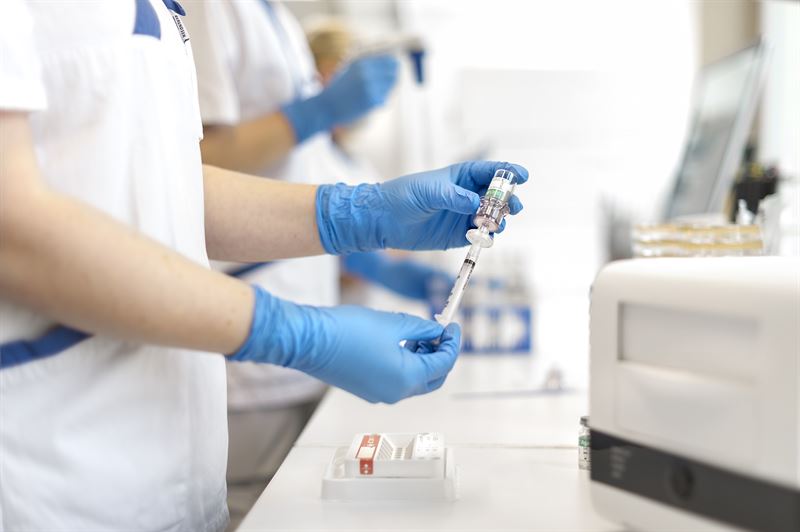The diagnostics company Gradientech AB (publ) today announces that they have filed a patent application with the Swedish Patent and Registration Office (PRV). The patent application concerns the use of machine learning-based methods to be able to detect antibiotic resistance in patient samples at an early stage. Rapid detection and monitoring of resistance is of great importance as multidrug-resistant bacteria and specific multi-resistance genes can quickly spread in society and in healthcare.
The patent application with priority date 30 August 2023 and entitled “Resistance And/or Resistance Mechanism Prediction” covers the use of machine learning-based methods to flag clinically important antibiotic resistance in patient samples containing bacteria at an early stage.
The new detection feature will add significant value to Gradientech’s antibiotic susceptibility test QuickMIC® − currently the fastest AST-system on the market for positive blood cultures, and capable of delivering detailed MIC results in 2-4 hours. Rapid treatment and infection control measures are essential when it comes to clinically challenging drug resistance to protect both the patient, the hospital population and society.
The new feature is an early warning system which will make it possible to detect certain resistances already after half the normal running time. It will enable continuously monitoring of all information from the QuickMIC instrument in order to immediately flag when a patient is at risk of severe drug resistance.
“I feel proud of the Gradientech team and our commitment to improving the clinical management of critically ill sepsis patients, and that we also are contributing to protecting society from the spread of antibiotic resistance”, says Sara Thorslund, co-founder and CEO of Gradientech.
The QuickMIC system and its Gram-negative panel are CE-marked and commercially available in Europe but not yet available for sale in the United States.


